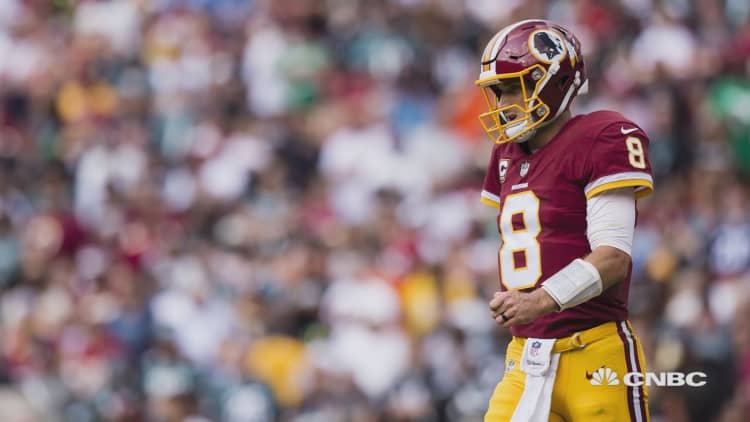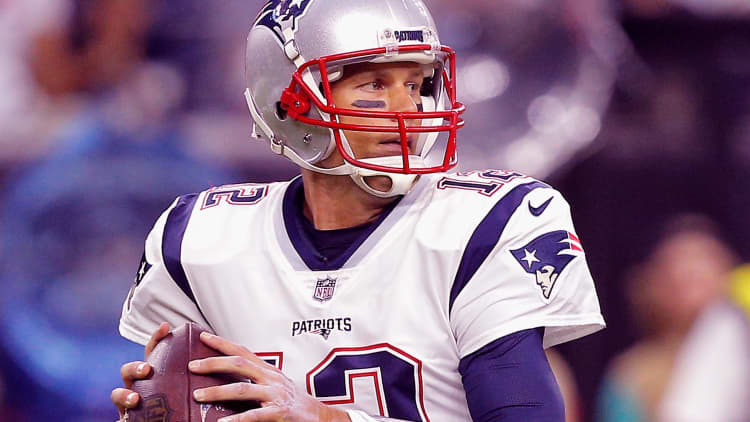While the Super Bowl champions will win $191,000 this Sunday, it could cost employers over $3 billion on Monday due to absenteeism.
According to HR consulting firm Challenger, Gray and Christmas, over 111 million Americans will watch the New England Patriots face off against the Philadelphia Eagles. An estimated 16.5 million people, or one in ten Americans, plan on completely skipping work the next day.
With Americans working an average of 34.5 hours per week, or 6.9 hours a day, according to the Bureau of Labor Statistics, truant workers will cost employers $3.032 billion (the average weekly earnings rate is $26.63 per hour, according to the firm).
The cities whose teams are playing in the big game could be hit the hardest. According to the latest data from the Bureau of Labor Statistics, New England boasts over 7.6 million workers, while Philadelphia has 2.9 million.
"If one in ten of those workers skips Monday, the cost to employers would hit $194 million," reports the HR consulting firm.
The firm also found that it's not just those skipping the whole day who can drive up costs. According to data measured by the Bureau of Labor Statistics, about 60.1 percent of Super Bowl viewers are employed. If all workers who watch the Super Bowl come in just one hour late or spend one hour discussing the game instead of doing work, it could cost employers $1.78 billion.
According to the firm, U.S. employers already lose an estimated $296 million in lost productivity for every ten minutes that employees spend rehashing the game, watching highlight reels or setting up their Super Bowl pools during the workday.

"Every year, the Monday after Super Bowl, and typically the days leading up to the big game as well, are a productivity killer for employers," says vice president Andrew Challenger in a statement.
In 2017, the firm estimated that employers lost $290 million for every ten minutes workers spent focusing on the previous night's game and the employer cost in lost productivity topped $1.78 billion.
Companies have started taking note. Food and beverage company Kraft Heinz announced last year that all corporate salaried workers would receive the day off on the Monday after the Super Bowl.
"The Heinz brand doesn't settle on delivering superior taste or quality, and we don't believe America should have to settle on the day after the best sports day of the year," said Nicole Kulwicki, the head of Heinz brands, in a press release.
The company even filed a petition to make Super Bowl Monday a national holiday. The petition, which is now closed, acquired over 71,000 signatures but needed to reach 100,000 to be sent to Congress.
Although these employer costs do seem staggering, says Challenger, the loss of productivity will likely not be noticed by an individual company.
He adds that the Super Bowl usually has a positive impact on the overall economy. "And gathering workers together for any reason, especially a shared event, is always great for morale."
Like this story? Like CNBC Make It on Facebook.
See also:
Why wearing a Halloween costume to work may make you a happier employee
4 NFL players who save more than 70 percent of their salaries
NFL player who lives on $60,000 a year says this book changed his mindset about money



